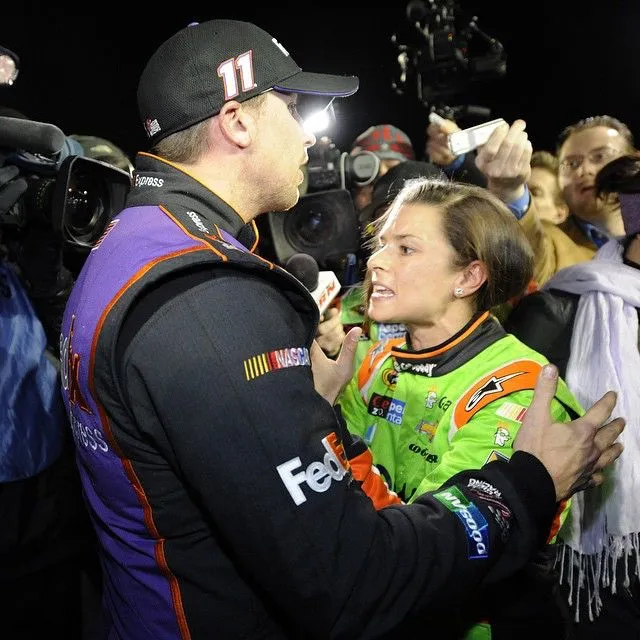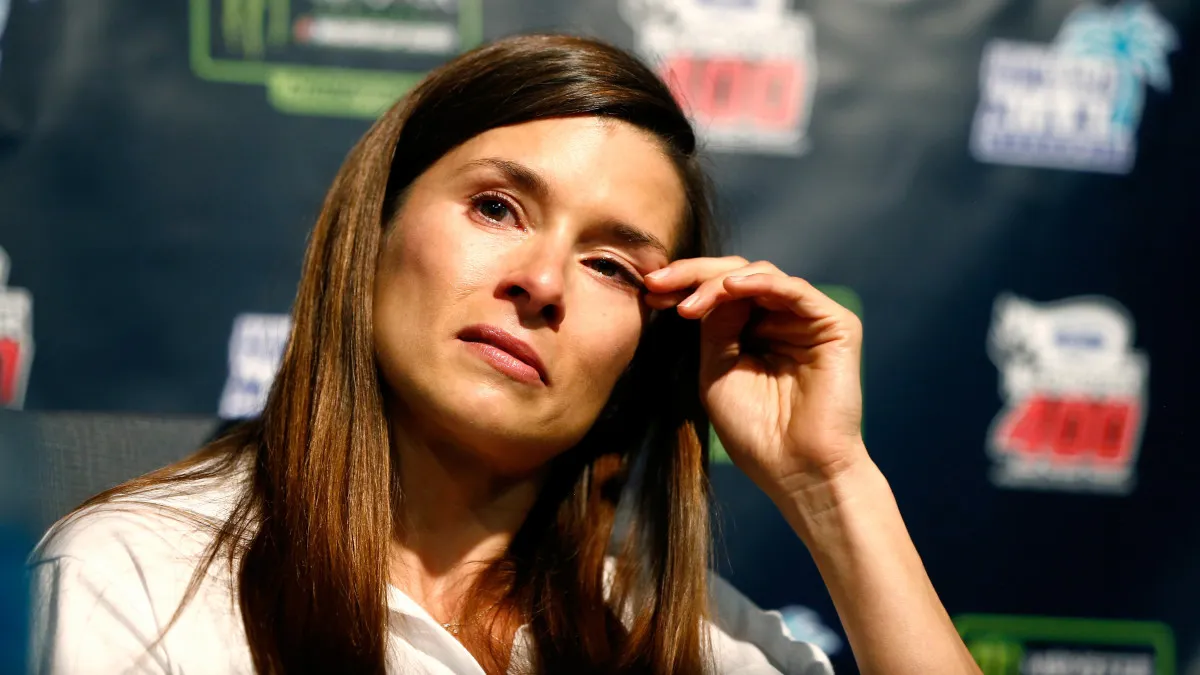The Indy 500, known as “The Greatest Spectacle in Racing,” has long captivated motorsport enthusiasts. However, this year’s event has taken an unexpected turn, not because of the race itself, but due to the backlash surrounding NBC’s coverage and the inclusion of former driver Danica Patrick in the broadcast team. The phrase “Get Danica Patrick outta here” has dominated online conversations, with fans voicing their frustration over what they perceive as a misstep by NBC in their presentation of the iconic race.

For years, the Indy 500 has been a showcase of speed, skill, and strategy. Millions tune in to witness the drama unfold on the Indianapolis Motor Speedway, making the broadcast team an integral part of the viewing experience. From pre-race analysis to post-race interviews, every detail matters. This year, however, NBC’s choices have left many viewers questioning their approach.
Danica Patrick, a trailblazer in motorsport and the most successful woman in the history of American open-wheel racing, is no stranger to controversy. While her achievements on the track are undeniable, her transition to broadcasting has been met with mixed reactions. NBC’s decision to feature Patrick prominently during their Indy 500 coverage has reignited debates about her suitability as a commentator. Critics argue that her commentary lacks depth and fails to enhance the viewer experience. Social media platforms have been flooded with comments like “Get Danica Patrick outta here” and calls for NBC to rethink their strategy.

Fans’ dissatisfaction seems to stem from several factors. First, many believe that Patrick’s insights do not adequately reflect the technical and strategic nuances of the race. The Indy 500 is not just about speed; it’s about pit strategies, tire management, and split-second decisions. Critics argue that Patrick’s commentary often focuses on generic observations, leaving die-hard fans wanting more. This has led to comparisons with other commentators who bring a deeper understanding of the sport, such as former drivers and team strategists who can explain the complexities of racing to a broad audience.
Second, some fans feel that NBC is overly reliant on Patrick’s star power rather than her broadcasting skills. While her name draws attention, many argue that it does not compensate for the perceived lack of quality in her commentary. Viewers expect a balance between expertise and entertainment, and for many, Patrick’s contributions fall short. This sentiment has fueled the growing discontent, with fans questioning NBC’s decision to prioritize celebrity appeal over substantive analysis.
Adding to the frustration is the perception that NBC’s coverage as a whole has lost its focus. Critics argue that the broadcast has become more about storytelling and less about the race itself. While human interest stories and behind-the-scenes features are valuable, they should not come at the expense of detailed race analysis. Fans want to know why a driver chose a particular pit strategy or how weather conditions are impacting tire performance. When these elements are overshadowed by personality-driven commentary, it diminishes the viewing experience for hardcore fans.

The backlash has sparked broader discussions about the role of commentators in sports broadcasting. In an era where fans have access to in-depth analysis online, expectations for televised coverage are higher than ever. Commentators are no longer just voices in the background; they are educators and entertainers who play a crucial role in shaping the narrative of the event. For many fans, Patrick’s performance does not meet these expectations, leading to calls for a more balanced and expert-driven approach.
However, not everyone agrees with the criticism. Supporters of Patrick argue that she brings a unique perspective as a former driver who has competed at the highest levels of motorsport. Her firsthand experience and ability to relate to the challenges faced by drivers add value to the broadcast. They also point out that Patrick is still relatively new to broadcasting and may need more time to refine her skills. For these fans, the backlash feels unwarranted and overly harsh, reflecting the often-unforgiving nature of public opinion.
NBC has yet to address the controversy directly, but the network is undoubtedly aware of the fan reaction. Balancing the demands of a diverse audience is no easy task, especially for an event as iconic as the Indy 500. While some viewers prioritize technical insights, others may appreciate the personal stories and broader appeal that commentators like Patrick bring. Striking the right balance is critical to maintaining the integrity of the broadcast and ensuring the satisfaction of all viewers.
The “Get Danica Patrick outta here” movement highlights a broader challenge facing sports broadcasters today: how to cater to both hardcore fans and casual viewers. The Indy 500 attracts a wide audience, from lifelong motorsport enthusiasts to newcomers discovering the race for the first time. Crafting a broadcast that satisfies both groups requires a delicate mix of expertise, charisma, and storytelling.
As the dust settles on this year’s Indy 500, NBC may need to reconsider its approach to future broadcasts. Incorporating more expert analysts, enhancing technical explanations, and finding ways to engage both casual and dedicated fans could help address the current dissatisfaction. Meanwhile, Patrick’s critics and supporters alike will be watching closely to see how she evolves as a broadcaster in the coming years.
The controversy surrounding Patrick’s involvement in NBC’s Indy 500 coverage underscores the passion and intensity that define motorsport fandom. While opinions may be divided, one thing is clear: fans care deeply about the integrity of the Indy 500 and the way it is presented to the world. Whether NBC chooses to double down on its current strategy or make significant changes, the network will need to navigate these challenges carefully to maintain the trust and loyalty of its audience.
In the end, the Indy 500 is about more than just one commentator or broadcast team. It is a celebration of speed, innovation, and the human spirit. As fans continue to debate NBC’s choices, the race itself remains a testament to the enduring allure of motorsport—a spectacle that transcends controversy and unites people in their love for racing. Whether the criticism of Patrick is fair or overblown, the Indy 500 will continue to inspire and captivate audiences for generations to come.